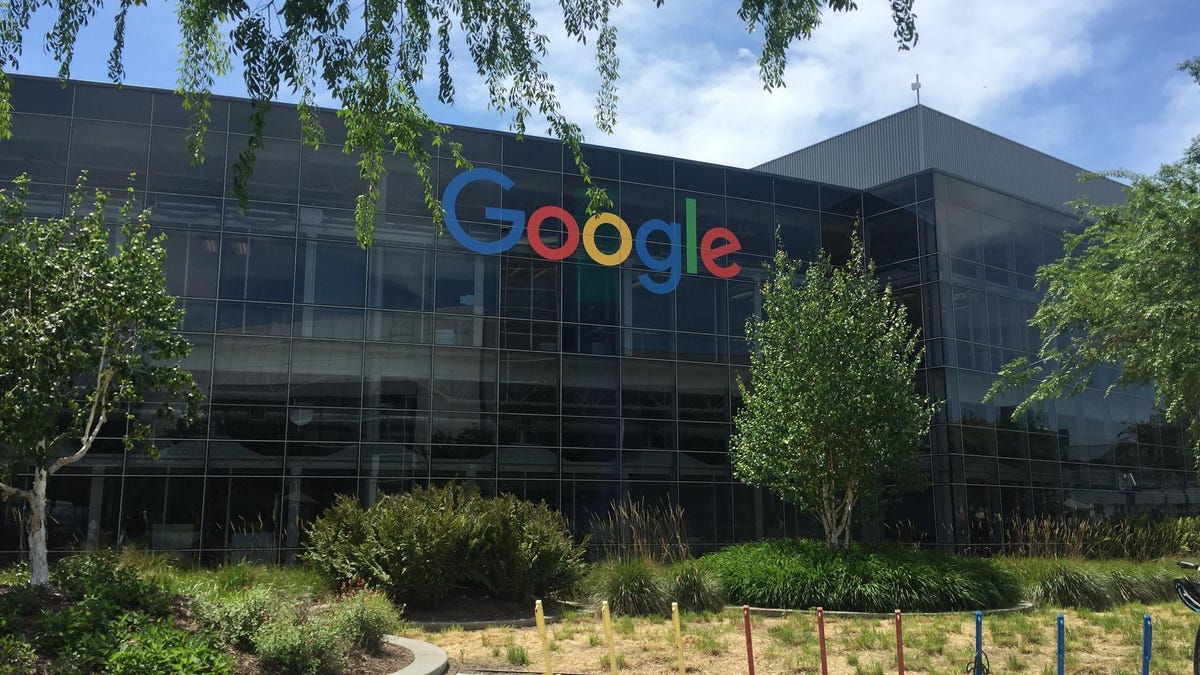Google crushes financial expectations as it faces antitrust charges
The search giant's revenue rebounds after a disappointing second quarter.

Google headquarters in Mountain View, California.
Google on Thursday unveiled its third-quarter financial results, as the search giant deals with the fallout of a landmark antitrust lawsuit from the US government. For all of the company's woes, business is still booming.
The earnings report, which showed better than expected revenue and earnings, provides a snapshot of the company's massive search and advertising operations, two key aspects of the company's business that have drawn the most scrutiny from antitrust regulators.
"We believe that our products are creating significant consumer benefits, and we'll confidently make our case," Google CEO Sundar Pichai said during an earnings conference call, addressing the Justice Department lawsuit. "We know our success in search is not guaranteed."
Google's power stems from its digital ad business, a juggernaut that brings in about 85% of the company's roughly $160 billion in annual sales. The ad operation is fueled by the company's namesake search engine, which processes around 90% of online searches around the world and is considered some of the most prime real estate on the internet.
It's that dominance that attracted the government's attention, which could profoundly alter the course of the company. Last week, the US Department of Justice filed a massive lawsuit, one of the biggest problems Google has faced in its 22-year existence. The landmark complaint accuses the tech giant of illegally holding monopolies in search and search advertising, the culmination of a more than yearlong investigation into alleged anticompetitive practices at the company.
Google said it's taking the antitrust scrutiny into account as it moves forward with its business. "Whether it's feedback or rulings, we'll be flexible and adapt," Pichai said. "And so we're building that into it."
The tech giant also faces uncertainty as lawmakers attack Section 230 of the 1996 Communications Decency Act, a legal protection that the tech industry considers foundational to the open internet. The rule, which shields tech platforms from being liable for content posted on their platforms, is under scrutiny from both Democrats and Republicans. Pichai, along with Facebook CEO Mark Zuckerberg and Twitter CEO Jack Dorsey , testified at a Senate hearing about the rule on Wednesday.
A rebound amid the pandemic
In the quarter ended Sept. 30, Google's parent company Alphabet tallied $46.2 billion in sales, soaring 14% year over year and handily beating analyst estimates of $42.9 billion. Earnings per share were $16.40, beating expectations of $11.29 per share, according to Refinitiv. YouTube, which Google owns, generated $5 billion in ad sales.
Alphabet's shares jumped almost 8% in after-hours trading.
The financial results mark a rebound for the company. In the second quarter, Google's sales declined year over year for the first time in its history, the product of a slumping advertising market amid the coronavirus pandemic. Google makes most of its money on ads, and many companies -- particularly in the travel and entertainment industries -- decided to pull back while people hunkered down in their homes. Google said the bounce back was "consistent with the broader online environment," as marketers begin to spend more compared with the earlier months of the pandemic.
The tech giant also said its strong quarter was partly because of the success of its cloud business, which provides storage and enterprise services to other companies and organizations. Google said it will break out the revenues of that operation starting in the fourth quarter and will share data going back to 2018.
On the conference call, Google was also asked about its consumer hardware strategy. Earlier this month, the company released the next generation of its Pixel smartphones . The devices were cheaper than last year's models and came without the bells and whistles of previous phones. For example, last year's Pixel 4 included a radar chip that senses hand movements for gesture control. This year's Pixel 5 ditched it.
Pichai on Thursday teased next year's devices, saying the company will "lean in" to other technology it's been developing. "Some of our deeper investments will come into play," he said.

